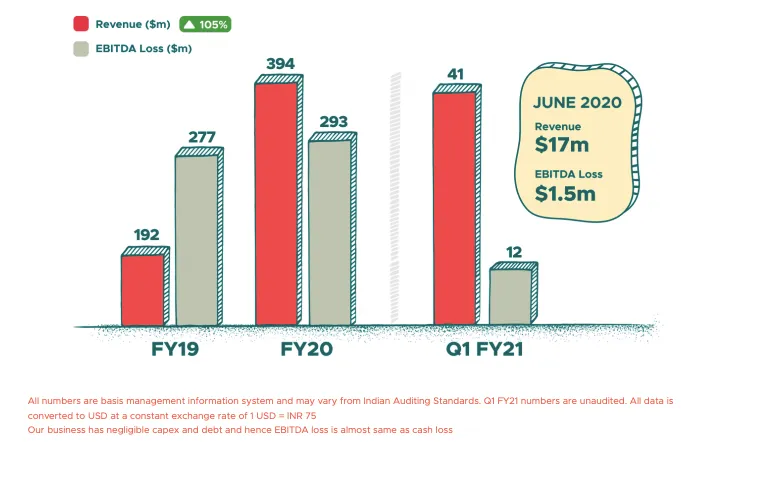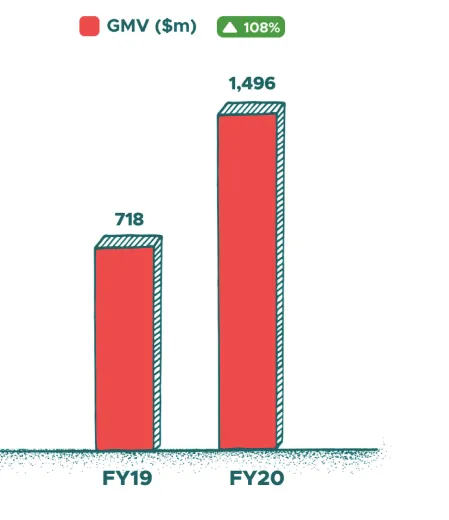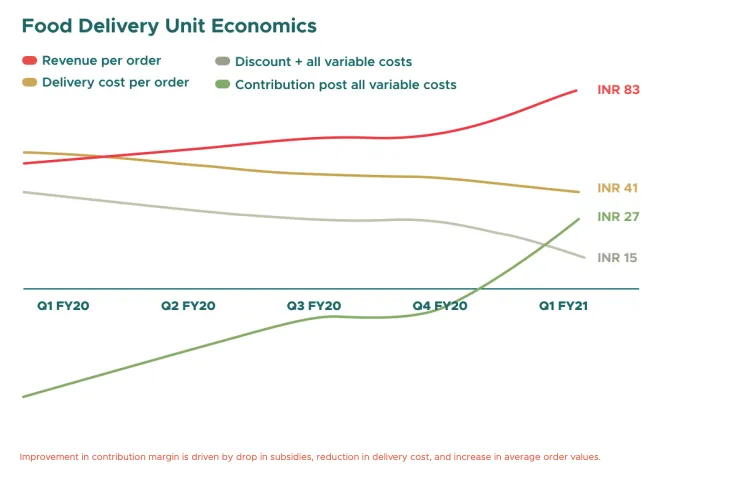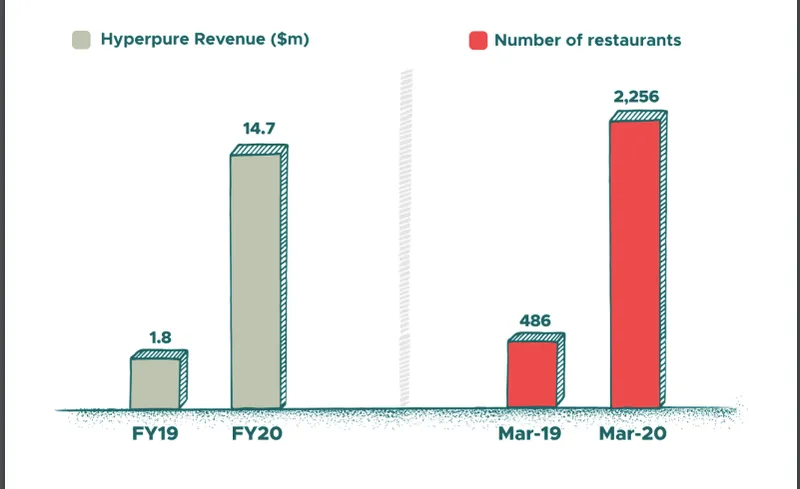Zomato’s burn to be under $1M, revenue close to 60 pc of pre-COVID-19 peaks
The COVID-19 crisis has had a negative impact on foodtech and food delivery businesses. Zomato’s food delivery business GMV was down 80 percent, however, from this month, the foodtech unicorn is expecting at its revenue from food delivery to touch 60 percent of its pre-COVID-19 peaks.
Foodtech unicorn announced its performance report on the company's 12th anniversary. On many levels, this has been a difficult year for the Gurugram-based foodtech startup. However, the report by the team stated,
“While COVID-19 has impacted the size of our business, it has accelerated our journey to profitability. In terms of the size of the business, COVID-19 has set us back by a year or so – but a year is only a small blip when you are building a company for the next 100 years.”

Deepinder Goyal and Gaurav Gupta
The report added that the company has seen a positive impact.
In July, Zomato estimates its burn to be under $1 million, and revenue at close to 60 percent of pre-COVID-19 peaks of $23 million per month. “We expect to make complete recovery over the next three to six months months while continuing to maintain tight control on costs/profitability,” the team said in the report.

Image Source : Zomato Revenue Report, Blog
The report added that Zomato’s FY20 India food delivery GMV grew by 108 percent over FY19. The team had also acquired Eats’ India vertical in January this year. However, when the rise of COVID-19 cases started in March, Zomato’s food delivery business GMV was down by 80 percent as compared to its peak in February.
“We expect sharp recovery in our order volumes as lockdowns continue to ease and the operating environment continues to improve. The unit economics of our food delivery business have improved consistently over the last 18 months. In Q1 FY20, we used to make a contribution margin of negative Rs 47 per order; in Q1 FY21, we made a contribution margin of positive Rs 27 per order,” said Deepinder Goyal, Co-founder and CEO, Zomato said in the report.

Image Source: Zomato Report, Zomato Blog
However, the unicorn’s current contribution margin is still affected. While the team didn’t share the numbers in the report, it said it expects contribution margin per order to normalise between Rs 15 to Rs 20 per order.

Image Source: Zomato Report, Blog
On the dining side, the team added that while their business grew with significant gains in EBITDA margins in the early part of the year. The business was the hardest hit because of the pandemic.
This leads to almost negligible revenue across advertising and Zomato Pro.
“The recovery here is going to be slow. Users will be concerned about social distancing and hygiene and restaurants will need to reorganise themselves to be able to build trust with users on these fronts. To help our industry, we have launched ‘Contactless Dining’ in India and eight more countries. With Contactless Dining, users can enjoy visiting a restaurant without touching any menu cards or interacting with the restaurant staff,” added Deepinder.

Image Source: Zomato Report, Blog
However, the B2B business Hyperpure started in 2018, is going strong. The team added that they are now looking to expand it beyond Delhi and Bengaluru.
Apart from this, the report outlined the efforts Zomato has been making to help solve the migrant labour and hunger crisis. Deepinder said:
“The COVID-19 crisis hit the daily wager community badly – leading to widespread hunger across the country. Springing into action, Feeding India (the India chapter of Zomato Feeding Foundation) launched ‘Feed the Daily Wager’ campaign to raise money and provide food support to daily wagers who lost their livelihood during the COVID-19 lockdown. 'Feed the Daily Wager' collected Rs 32 crore (approximately $4.2 million) which was used to distribute over 65 million meals (in the form of ration kits,) to the daily wager community."
Edited by Kanishk Singh









